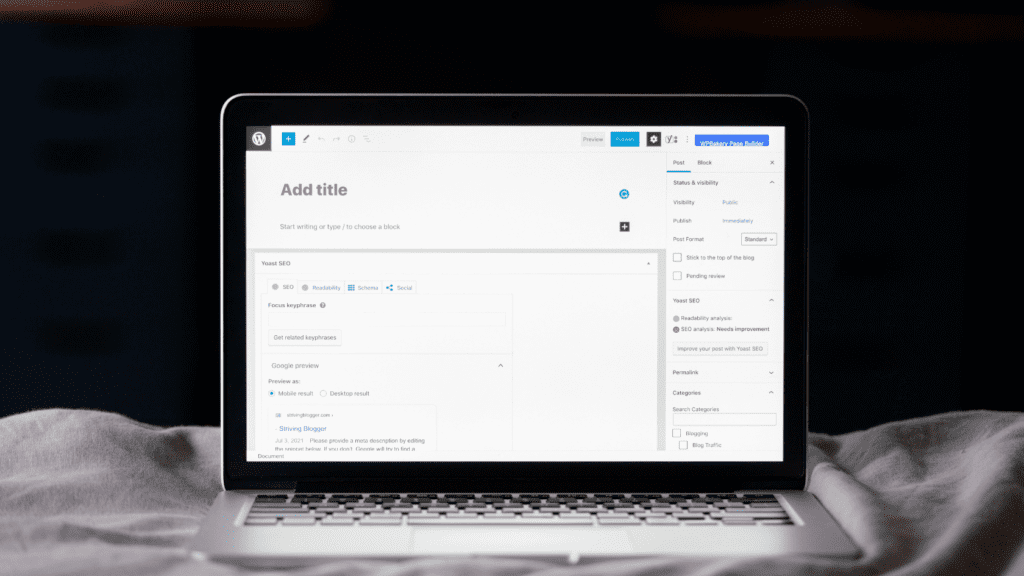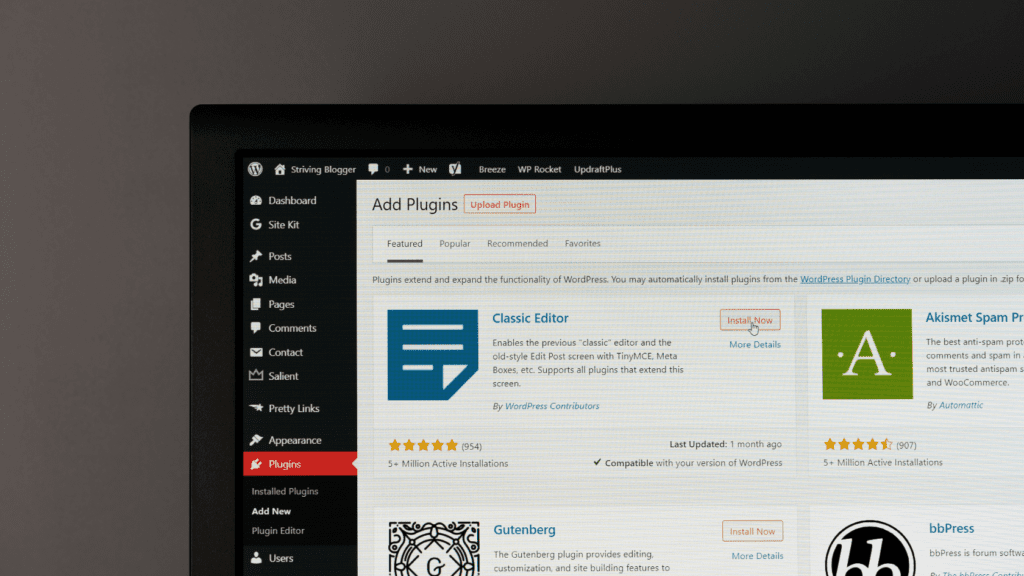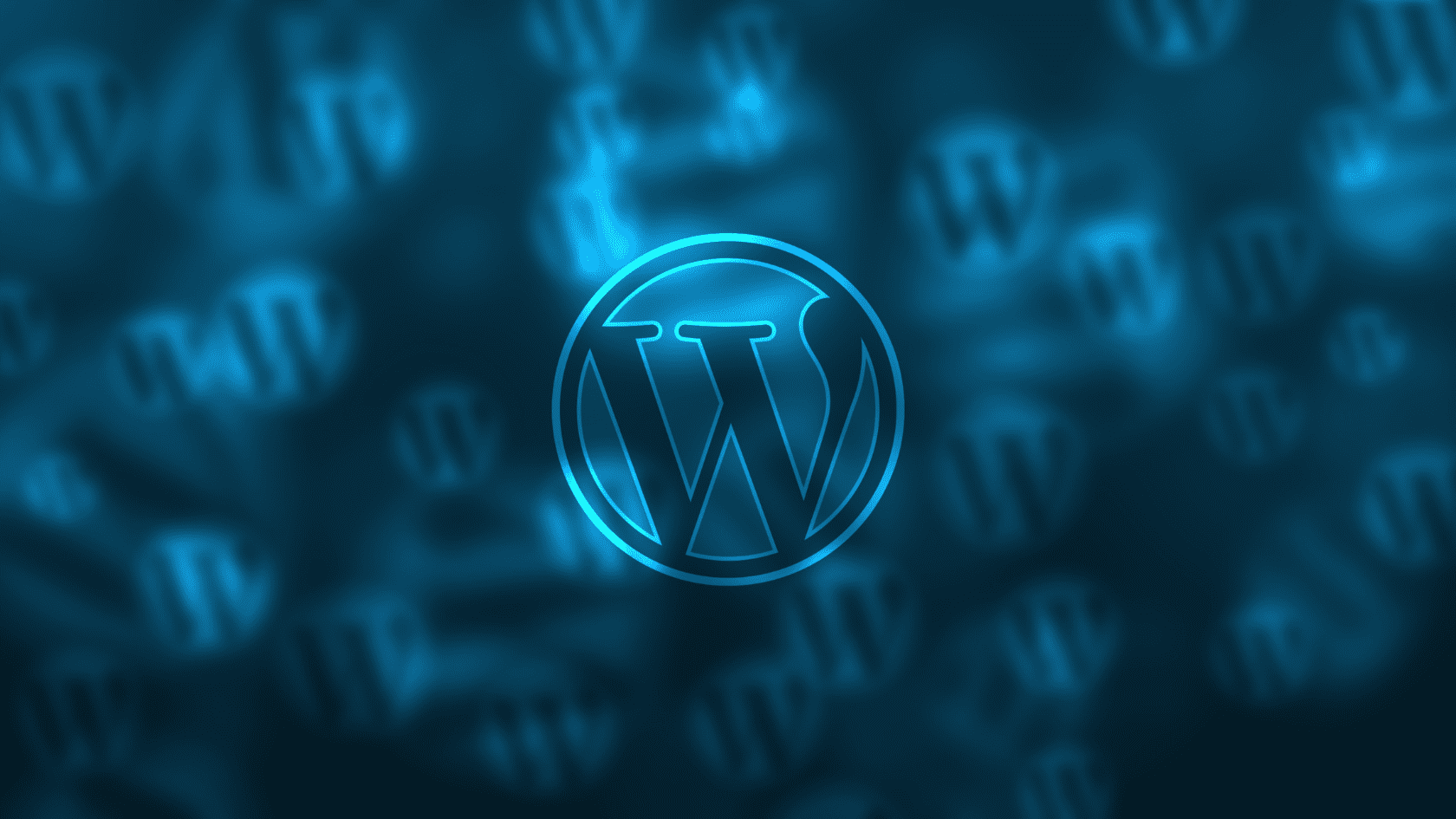For nearly two decades, WordPress has been the foundation of the internet. From its humble beginnings as a blogging platform, it evolved into a web development powerhouse that supports over 40% of all websites. The platform allowed users, individuals, entrepreneurs, and businesses to create, build, and manage their websites easily with an open-source platform. But recently, a major tremor shook this trusted ecosystem: the legal conflict between WordPress vs WPEngine.
This is no ordinary business dispute.
It reveals a deeper shift within the open-source landscape and, more importantly, a crisis of trust—a vital asset in the digital age.
WordPress Isn’t Going Anywhere… Yet
Let’s be clear: WordPress isn’t going away tomorrow.
Matt Mullenweg and Automattic have deep enough pockets to fight this legal battle for the foreseeable future. WordPress still powers a significant portion of the internet, and moving away from it is a complex task for most users. Yet the issue isn’t about financial endurance or technical superiority. The real damage lies in the erosion of trust, and that’s a much more complex challenge to overcome.
WordPress: From Revolutionary to Relic?
WordPress has long been celebrated for making web creation accessible to the masses. It has democratised the internet by giving non-technical users the tools to create dynamic, scalable websites. However, this latest conflict suggests that the era of WordPress as an unchallenged champion of openness and innovation may be over.
What’s at the heart of this drama? It’s not just Matt Mullenweg seeking a bigger cut from the ecosystem. This fight with WordPress vs WPEngine exposes a broader value shift from a community-driven, collaborative platform to something increasingly corporate, rigid, and out of touch with its user base. The open-source philosophy that made WordPress successful is at odds with business interests.

The Unnecessary Trauma
This WordPress vs WPEngine conflict represents more than a legal dispute. It’s a symbolic shift. For years, people saw WordPress as an open, flexible, and empowering platform that improved the internet. But now, this legal battle has clouded that narrative. Instead of being remembered for its role in fostering creativity, WordPress is at risk of being remembered for causing unnecessary trauma to its users.
Many in the community feel like they’ve been abandoned by a platform they trusted. It’s not that WordPress can’t adapt or evolve. Every major platform goes through transitions. But when the guiding principles that built a loyal following are discarded for corporate interests, the community feels betrayed, and betrayal leaves deep scars.
Users are asking: Is WordPress still the best platform for their needs? Or is it time to explore alternatives that align with the values that WordPress once stood for?
Trust Broken, But Not Beyond Repair
Let’s not sugarcoat it—trust is fragile. Once it’s broken, it can take years to rebuild, and it may never be fully restored. For a platform that prides itself on openness and flexibility, getting tangled in legal drama with a major hosting provider like WPEngine raises serious questions about its future.
Of course, WordPress itself isn’t going to disappear overnight. The platform is technically sound, and its community is resilient. But the damage to its reputation is undeniable. It’s no longer seen as the open web champion but as a platform bogged down by corporate conflict and internal power struggles.
WordPress vs WPEngine Conflict: Ethical Dilemma
At its core, WordPress has always been built on the principles of openness, transparency, and community-driven development. The platform’s success has primarily been attributed to its open-source nature, which promotes collaboration and accessibility for all users, regardless of technical expertise. However, the legal battle with WPEngine exposes a potential shift in priorities—from serving the community to protecting financial interests.
This raises several ethical concerns:
Betrayal of Open-Source Values
WordPress’s open-source foundation is meant to encourage innovation and user empowerment. When a company starts limiting or manipulating that openness for corporate gain, it undermines the very values that built its community. Is WordPress still standing for the open web, or has it strayed too far into the territory of business interests?
Trust and Transparency
Trust is a key component of ethical business practices, especially for platforms like WordPress, which many individuals and companies rely on for their livelihoods. Automattic’s lack of clear communication and transparency during this conflict suggests a failure to uphold these principles. As users question the platform’s motives, the erosion of trust can be seen as an ethical failure.
Impact on the Community
Ethical businesses prioritise the needs and welfare of their users. In this case, the WordPress community of developers, small businesses, and marketers are caught in the crossfire. This legal battle might not directly hurt WordPress’s technical performance. Still, it creates uncertainty and anxiety among users, who feel the platform no longer prioritises their best interests.
Corporate vs. Community Interests
The conflict also highlights a growing tension between corporate entities within the WordPress ecosystem and the broader community. When financial interests begin to supersede user needs, it signals an ethical shift from the platform’s original purpose. Businesses have a responsibility to their stakeholders, but they also have an ethical duty to maintain the principles that built their success.
WordPress vs WPEngine: What Does This Mean for Marketers and Developers?
It reminds us that no platform is invincible. Even something as dominant as WordPress can be shaken by internal strife.
The cracks have appeared, and now might be the time to start reconsidering what’s best for your website and digital strategy. Transitioning away from WordPress might be challenging, but it’s no longer an outlandish idea—and it’s not nearly as expensive or complex as some might think.
Talk in forums, slack channels, and X highlight that many businesses, developers, and marketers are seriously considering alternatives. Solutions once seen as niche or secondary, like headless CMS platforms, fully managed solutions, or custom-built sites, are gaining traction.
With the WordPress vs. WPEngine conflict raising questions about platform stability, now is the time for marketers to reconsider their digital strategies. Your website is the cornerstone of your marketing efforts, and relying on a platform facing internal issues can jeopardise your growth.
At BQC, we help brands understand these issues. We’ll guide you through finding the best tools to keep your marketing strong and your website future-proof.
Let’s talk about how to strengthen your marketing strategy and ensure your website supports your marketing goals, no matter what changes come.

Is WordPress Still the Best Option?
For many, this moment is a turning point. WordPress may still be the dominant platform, but dominance without trust isn’t sustainable in the long term. While WordPress has a vast ecosystem of plugins, themes, and hosting providers, the battle with WPEngine is a stark reminder that the ecosystem is open to shifting business interests.
We’re also seeing other platforms rise to meet the demand for flexibility and innovation without the baggage of internal conflict. Platforms like Squarespace, Shopify, HubSpot, and even headless CMS solutions like Strapi are increasingly considered viable alternatives. These platforms may need more of WordPress’s market share, but they don’t carry the same trust issues that WordPress is now grappling with.
What’s Next for WordPress?
WordPress is now at a crossroads. It can no longer rely solely on its reputation as the platform that “improves the internet.” That narrative has been shattered, and rebuilding trust will be its greatest challenge.
The WordPress community has always been resilient, but the challenge is different this time. Rebuilding trust will require leadership to refocus on the core values that made WordPress great, including collaboration, transparency, and a user-first approach.
If the platform can navigate this crisis and restore its standing with the community, it may still have a bright future. But suppose business interests continue to override the open-source ethos. In that case, we may start seeing a steady migration away from WordPress to newer, more flexible platforms.
WordPress vs WPEngine: Navigating an Ethical Crossroads
While this conflict between WordPress (Automattic) and WPEngine might seem like a business and legal battle on the surface, it cuts to the heart of something far more critical—the platform’s ethical foundations. WordPress, a symbol of the open web, is now facing an existential challenge: Can it continue to uphold its founding principles in the face of corporate pressures?
At the root of this dispute is the question of values vs. profit. WordPress rose to prominence not just because it was a technically superior platform but also because it championed values that resonated with millions—openness, collaboration, and empowerment. When a platform with such a powerful community-driven ethos gets embroiled in a fight that appears to prioritise corporate interests over user needs, it sends a troubling message: Has WordPress lost sight of its moral compass?

The Fragility of Trust in Open-Source Communities
Trust is the cornerstone of any ethical relationship between a platform and its users. WordPress’s open-source nature fostered trust because it promised users transparency, flexibility, and community control. However, this legal battle has fractured that trust. Users are now questioning whether WordPress is still working for them or working for corporate gain. A platform’s ethics aren’t just about its technical capabilities—they’re about the motivations behind its actions and whether users can still believe in the integrity of the system.
The Wider Implications for Digital Ethics
This dispute also raises a broader ethical question for the entire digital ecosystem: At what point do corporate interests overwhelm the original mission of a platform? WordPress is not the first open-source project to confront this issue and won’t be the last. But this moment is pivotal because it signals to the broader digital community that even the most trusted platforms are not immune to ethical compromises. The open web was built on freedom, collaboration, and user empowerment ideals. Still, as platforms grew, the ethical dilemmas surrounding them also grew.
The future of WordPress is more than just about code; it’s about ethics, trust, and the community that sustains it.
WordPress vs WPEngine: Restoring Trust and Integrity
To restore trust, Automattic and WordPress must reflect on their core values and commit to protecting the community that built their success. This is not just a matter of reaching a legal settlement; it’s about realigning with the ethical principles that have always distinguished WordPress from its competitors. Clear communication, transparency, and a genuine commitment to the user-first ethos will be essential in rebuilding the damaged trust.
Ultimately, WordPress’s ability to weather this storm will depend not just on the outcome of this legal battle but also on its willingness to prioritise integrity over profits. If leadership can navigate this ethical crossroads, there’s still hope that WordPress can emerge stronger—renewed in its commitment to the values that made it a global force in the first place. However, if this ethical divide deepens, the community may begin to look elsewhere for platforms that honour the trust and ideals that once set WordPress apart.



